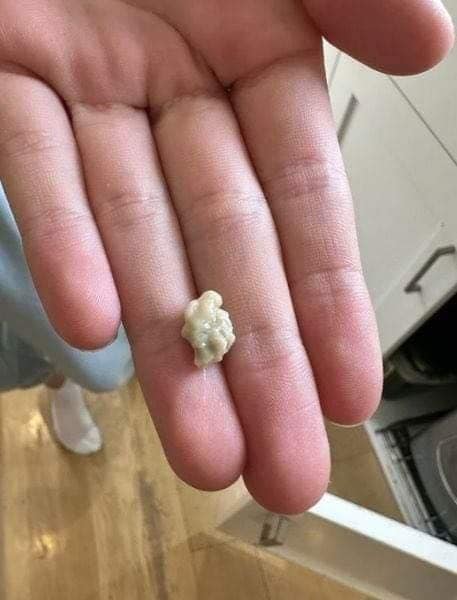ADVERTISEMENT
What Causes Tonsil Stones?
Several factors can contribute to the formation of tonsil stones:
- Poor Oral Hygiene: Inadequate brushing and flossing can allow bacteria, food particles, and dead cells to accumulate, leading to the development of stones.
- Chronic Tonsillitis: Recurrent infections and inflammation of the tonsils can cause deep crevices where debris can collect.
- Large Tonsils: People with larger tonsils or more pronounced crypts are more prone to developing tonsil stones due to the increased surface area for debris to gather.
- Post-Nasal Drip: Excess mucus that drips down the back of the throat can contribute to the buildup of material in the tonsils.
Symptoms of Tonsil Stones
While some people may not notice any symptoms, others may experience:
- Bad Breath (Halitosis): Tonsil stones are often associated with a foul odor due to the accumulation of bacteria.
- Sore Throat or Irritation: The presence of tonsil stones can cause discomfort in the throat, especially when swallowing.
- White or Yellow Lumps in the Tonsils: In some cases, tonsil stones can be visible in the back of the throat.
- Ear Pain: Although the stones are not in the ear, they can cause referred pain due to shared nerve pathways.
- Difficulty Swallowing: Large stones may cause a feeling of obstruction when swallowing.
How to Remove Tonsil Stones
There are various methods for removing tonsil stones, depending on their size and location:
- Gargling with Salt Water: A warm saltwater rinse can help dislodge small stones and soothe the throat.
- Manual Removal: Using a cotton swab or water flosser, you can gently try to remove the stone. Be cautious not to injure the tonsils or throat.
- Tonsil Stone Removal Kits: Some over-the-counter kits are specifically designed to remove tonsil stones safely.
- Consult a Doctor: If tonsil stones are large, recurrent, or causing significant discomfort, it’s best to see a healthcare professional for removal.
Preventing Tonsil Stones
To minimize the risk of developing tonsil stones, consider the following preventive measures:
- Maintain Good Oral Hygiene: Brushing teeth twice a day, flossing, and using an antibacterial mouthwash can help reduce the buildup of bacteria and debris.
- Stay Hydrated: Drinking plenty of water helps keep the mouth and throat clean by washing away food particles and mucus.
- Avoid Smoking: Smoking can increase bacteria levels in the mouth and contribute to the development of tonsil stones.
- Use a Tongue Scraper: Cleaning the tongue regularly can help remove bacteria that might otherwise contribute to tonsil stone formation.
When to See a Doctor
While tonsil stones are usually harmless, you should see a doctor if you experience:
- Chronic or recurrent tonsil stones
- Persistent bad breath that doesn’t improve with oral hygiene
- Frequent tonsil infections or tonsillitis
- Large tonsil stones causing significant discomfort or difficulty swallowing
In some cases, a healthcare provider may recommend a tonsillectomy (surgical removal of the tonsils) if tonsil stones continue to be a problem.
Conclusion
Tonsil stones may be an annoying and sometimes uncomfortable issue, but they’re generally not dangerous. By understanding the causes and taking steps to improve oral hygiene and reduce factors that contribute to their formation, you can effectively manage or prevent tonsil stones. If they do become a recurrent issue, a healthcare provider can help you explore more permanent solutions.

